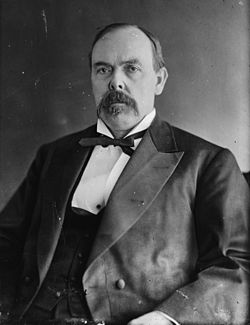| | |||||||||||||||||
| |||||||||||||||||
| |||||||||||||||||
 County results Willard: 50–60% 60–70% 70–80% 80–90% Morton: 50–60% 60–70% 70–80% | |||||||||||||||||
| |||||||||||||||||
| Elections in Indiana |
|---|
 |
The 1856 Indiana gubernatorial election was held on October 6, 1856, in order to elect the Governor of Indiana. Incumbent Democratic Lieutenant Governor of Indiana Ashbel P. Willard defeated People's Party nominee Oliver P. Morton. [1] [2]

